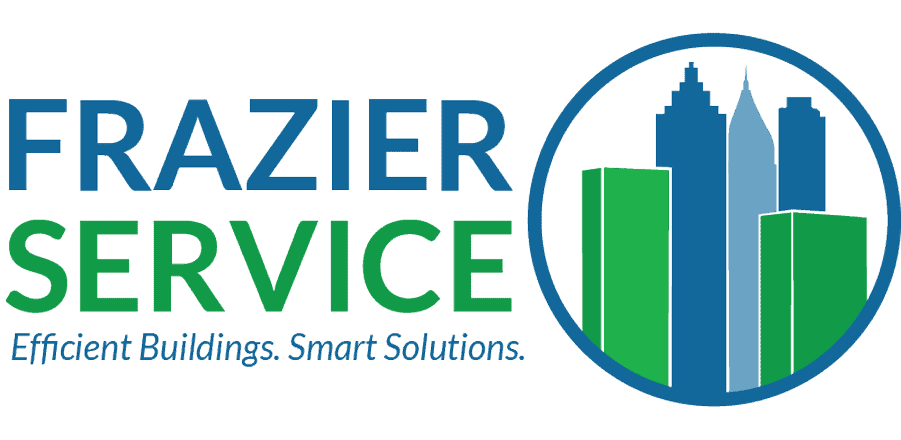
Clearing the Air: Your Complete Guide to Commercial HEPA Filters
In a post-pandemic world, air quality can’t be an afterthought; now, it’s an integral part of our everyday lives. And in this quest for healthy indoor air quality, one solution stands out: HEPA (high-efficiency particulate air) filters. Here’s what you need to know about this best-in-class filtration system.
What Are Commercial HEPA Filters?
Commercial HEPA filters are cutting-edge filtration systems renowned for their exceptional ability to capture minuscule airborne particles as tiny as 0.3 micrometers, achieving an astounding efficiency rate of 99.97%.
These filters are crafted with precision using dense arrangements of interlaced glass fibers, forming a labyrinthine structure. This specific design is what sets them apart, allowing the filters to effectively capture a wide array of contaminants like:
- Dust
- Pollen
- Bacteria
- Mold spores
- Industrial emissions
- Select viruses
With commercial HEPA filters in place, you can be confident in the purification of your indoor environment, promoting a healthier and more comfortable space for all.
The Key Benefits of Industrial HEPA Filters
Here are a few reasons why HEPA filters are a popular choice for commercial and industrial applications:
- Enhanced Indoor Air Quality: Commercial HEPA filters excel at removing particulate matter from the air, significantly improving the overall air quality in commercial spaces. By reducing airborne allergens and irritants, these filters help create a healthier environment for employees, tenants, and visitors.
- Increased Respiratory Health: Poor indoor air quality can exacerbate respiratory conditions such as asthma and allergies. HEPA filters can alleviate these concerns by reducing the presence of airborne triggers.
- Efficient Contaminant Control: HEPA filters are remarkably effective at capturing a wide range of contaminants, including fine particles and microorganisms. This prevents these pollutants from recirculating within your indoor environment, effectively reducing the risk of contamination and the spread of illnesses throughout your workforce.
- Improved HVAC System Performance: HEPA filters play a crucial role in maintaining the cleanliness and efficiency of HVAC systems. By capturing particles that would otherwise accumulate within the system, these filters prevent clogging and extend the lifespan of heating, ventilation, and air conditioning equipment. This leads to energy savings and reduced utility costs over time.
- Regulatory Compliance: Many facilities like healthcare facilities, laboratories, and cleanrooms now have strict air quality requirements. Commercial HEPA filters ensure compliance with these standards, providing peace of mind and helping businesses meet regulatory obligations. These filters also help businesses achieve green building certifications and sustainability goals.
How Often Should I Change My HEPA Filters?
The frequency of HEPA filter changes depends on several factors, including the specific application, the level of pollutants present, and the manufacturer’s recommendations. In general, it’s advisable to adhere to the manufacturer’s guidelines, which typically suggest replacing the filters every six to twelve months.
However, certain environments with higher pollutant loads may require more frequent filter changes. Facilities located in areas with heavy pollution, construction activities, or excessive airborne contaminants (e.g., manufacturing facilities) may benefit from more frequent filter replacements. It’s important to note that regular monitoring of filters, air quality testing, and consultations with HVAC professionals can determine the optimal replacement schedule for HEPA filters in your specific setting.
Can I Replace Commercial HEPA Filters By Myself?
How often should you change your commercial HVAC filter? Well, as you might expect, that depends on several variables. In a residential environment, homeowners are advised to change their filters at least once or twice per year and up to every three months. In a commercial environment, you’ll likely have a much more advanced HVAC system that runs more frequently, requiring you to change the filter more often. If your commercial building produces high volumes of particulate matter, you’ll need to change the filter even more frequently.
4 Reasons You Need a Professional to Change Your HEPA Filter
- Expertise and Knowledge: HVAC professionals possess the expertise and in-depth knowledge to identify the appropriate HEPA filter for specific applications. They understand the intricacies of HVAC systems and can recommend the most suitable filters to achieve your air quality goals.
- Correct Installation: Proper installation of HEPA filters is essential for their effectiveness. Professionals ensure precise installation, minimizing the risk of air bypass and guaranteeing a tight seal. This allows the filters to perform optimally, maintaining the desired indoor air quality standards.
- System Assessment and Maintenance: HVAC professionals can assess the overall health of the HVAC system during a filter replacement. They can identify any issues or inefficiencies that may hinder performance and recommend appropriate maintenance or repairs. This proactive approach prolongs the life of the system and ensures continuous clean air circulation.
- Compliance and Warranty: Partnering with professionals ensures that all maintenance and filter replacement activities are conducted in compliance with industry standards and guidelines. Moreover, professional services often come with warranties and guarantees, providing added assurance and protection for your investment.
State-of-the-Art Filtration Is Just a Click Away
Are you ready to harness the power of HEPA filters for a healthier, more productive indoor environment? Look no further than Frazier Service, your trusted partner in comprehensive building services.
We understand the vital role clean air plays in the well-being and productivity of your workforce. Our team specializes in the installation and replacement of commercial HEPA filters, and our HVAC services—including preventative maintenance and equipment repair—ensure your systems always operate at peak efficiency. Start a conversation today and discover how we can maintain optimal air quality for your facility.







